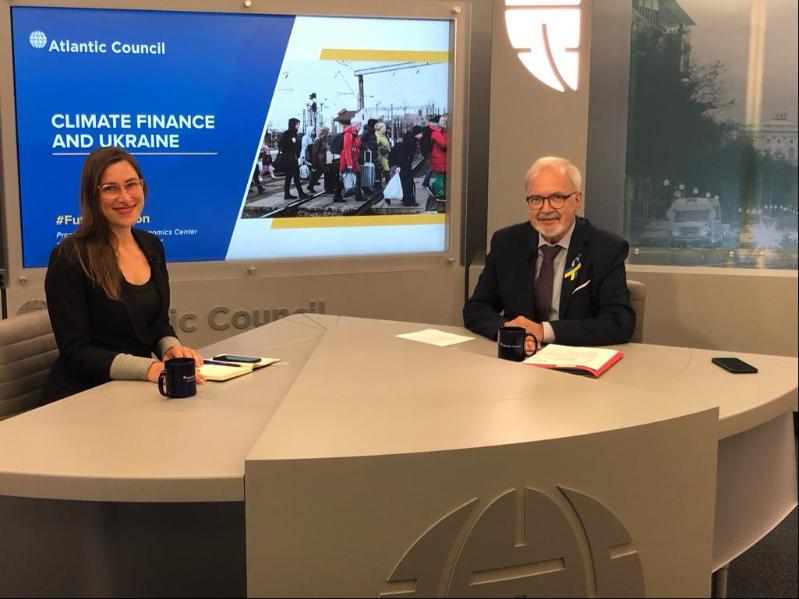
On the margins of the IMF/World Bank Group spring meetings, EIB President Werner Hoyer joined a live discussion with Atlantic Council’s Julia Friedlander on how EU investment can assist Ukraine, build a resilient energy infrastructure in Europe and contribute to addressing planetary emergencies, such as climate change and food security.
Condemning Russia’s brutal invasion of Ukraine, President Hoyer explained how this attack has demonstrated the need for Ukraine and the EU to reduce their dependence on Russian energy through broad expansion of renewable energy resources. Support for Ukraine has been a top priority for the European Investment Bank, which recently approved a €668 million financial support package to help Kyiv cope with war-related damage and pledged further €4 billion to help Ukrainian refugees. The EIB is also one of the world’s leading financiers for climate action and works with partners worldwide to address global challenges and support the most vulnerable.
During the livestream, President Hoyer said: “Putin’s attack on Ukraine is not a European crisis. It is an event that changes the international order the world over. Russia’s breach of international laws and Putin’s contempt for human life have shaken the multilateral system to its core. The future of our planet, of climate change, of peace, prosperity and the fight against poverty, even access to food and energy, are in jeopardy as a result of the war.”
President Hoyer also explained how multilateral development banks such as the EIB can leverage this moment to invest in quality infrastructure that addresses immediate national security concerns and reinforces adaptation to climate change:
“We need to invest in solutions to our planetary problems and most importantly, galvanise the energy and ingenuity of the private sector. The magnitude of investment needed to address global challenges such as pandemics and climate change is so great that the private sector must play a central role. There isn’t enough public money in the world, and what there is will now be under increasing pressure to finance security and defense. Now as before, creating a virtuous cycle of impactful and sustainable investment requires partnering with and crowding in the private sector. And this is where development banks will continue to play a crucial role.”
Find out more about the EIB’s participation in the IMF/ World Bank Group spring meetings